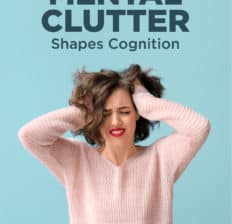This Dr. Axe content is medically reviewed or fact checked to ensure factually accurate information.
With strict editorial sourcing guidelines, we only link to academic research institutions, reputable media sites and, when research is available, medically peer-reviewed studies. Note that the numbers in parentheses (1, 2, etc.) are clickable links to these studies.
The information in our articles is NOT intended to replace a one-on-one relationship with a qualified health care professional and is not intended as medical advice.
This article is based on scientific evidence, written by experts and fact checked by our trained editorial staff. Note that the numbers in parentheses (1, 2, etc.) are clickable links to medically peer-reviewed studies.
Our team includes licensed nutritionists and dietitians, certified health education specialists, as well as certified strength and conditioning specialists, personal trainers and corrective exercise specialists. Our team aims to be not only thorough with its research, but also objective and unbiased.
The information in our articles is NOT intended to replace a one-on-one relationship with a qualified health care professional and is not intended as medical advice.
Brain Clutter Impacts Working Memory Among Older Adults
March 23, 2022

As we age, it’s not uncommon to experience memory challenges. You may think this is due to a decline in brain function, but recent research suggests that in many cases, it’s actually a result of data overload. Your working memory doesn’t lack information but has too much of it to sift through, which is called “brain clutter.”
Accumulating information over time can make detail retrieval more difficult, according to these findings, but mental clutter isn’t always a bad thing — it’s a sign of wisdom and enables deeper, more creative thoughts.
Study: Mental Clutter Shapes Cognition
A March 2022 review published in Trends in Cognitive Sciences indicates that among older adults, episodic memory, or the representations of events, is more cluttered than it is for younger adults. This brain clutter can also be described as a richness of memory, with layers of information that are built up over time.
According to researchers, “cluttered representations” might include target information, recently activated but no-longer-relevant information, prior knowledge and irrelevant information — all working together to address a current environment. These representations are bits of data or memory that can interfere with the retrieval of information that’s needed in the moment, thereby causing mental clutter.
These findings highlight that, for older adults, it’s not too little information being stored in their brains, but too much. Their memories are so rich that it can be hard to decipher needed vs. irrelevant information when it comes time to retrieve it.
Effects of Cluttered Memory
Cluttered memory means that a person has acquired so much information that it becomes different to retrieve a specific memory when it’s needed in the moment. The effects of brain clutter may include the following:
- trouble controlling your attention
- impaired memory
- brain fog
- trouble finding target information
On the other hand, a cluttered memory isn’t always a bad thing. The accumulation of information can be useful in many circumstances. Plus, it enhances creativity and allows for deeper thinking.
How to Clear Brain Clutter
This recent research shows that mental clutter can affect your ability to use relevant information in the moment and control your attention, but there are ways to improve your memory naturally.
1. Avoid Excess Sugar and Artificial Sweeteners
Eating foods that are high in sugar or artificial sweeteners will make it much harder to stay focused and maintain healthy energy levels. It’s also important to avoid refined carbohydrates that are often found in packaged foods and baked goods.
Instead, focus on eating fruits, vegetables and ancient grains, which are all nutrient-rich, boost energy and reduce inflammation.
2. Eat High-Quality Protein and Healthy Fats
The amino acids in protein foods and essential fatty acids in healthy sources of fat support the proper function of brain chemicals. Essential fatty acids also promote the production of happiness hormones, support cognitive function and reduce inflammation.
Add high-quality sources of protein and healthy fats to your diet, including grass-fed beef, organic poultry, eggs, wild fish, nuts, seeds, avocado and coconut oil.
3. Get Enough Sleep
Getting enough sleep is one of the most reliable ways to improve brain function. Getting adequate rest supports hormone balance and healthy energy levels.
4. Reduce Stress
Increased stress, especially when it’s chronic, can be detrimental to cognitive health. Stress increases cortisol levels, which impacts your mood, energy, appetite, sleep and more. It also reduces your ability to produce enough dopamine, which helps keep you focused and motivated.
5. Move Your Body
Daily movement or exercise helps to reduce stress, increase energy, improve sleep, balance hormones and reduce inflammation. Engaging in physical activity daily, especially as you get older, boosts cognitive function and memory, helping you clear mental clutter.
Conclusion
- Recent research suggests that older adults may experience brain clutter, which occurs when they are attempting to retrieve specific information but can’t sift through their stored memories.
- Although mental clutter makes it harder to use specific memories when you need them, it also enhances deeper thinking and creativity.
- To boost your memory, focus on eating nutrient-dense foods that boost energy and support cognitive function. It’s also important to get enough sleep, exercise daily and reduce stress.




